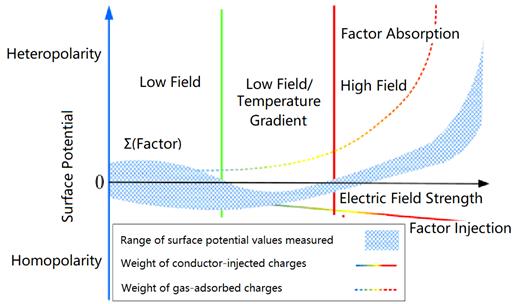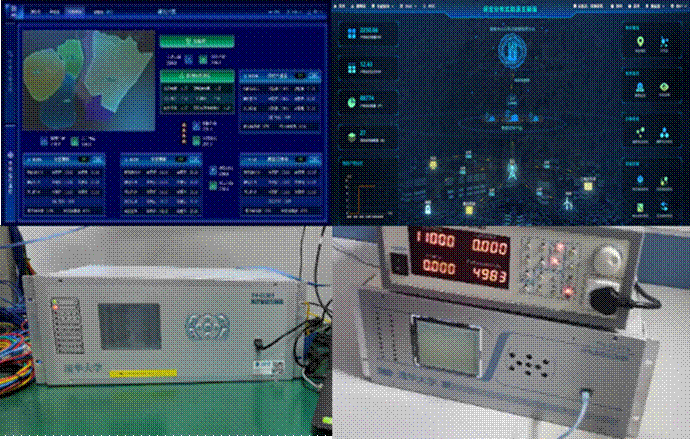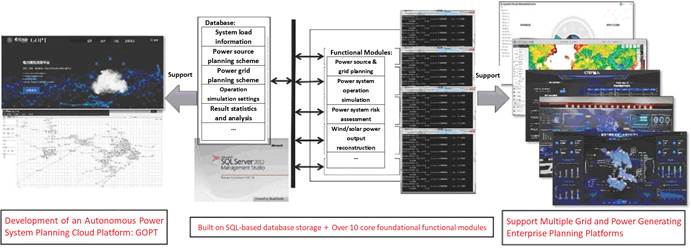On the morning of November 19, the Beijing Municipal Government held the 2023 Beijing Science and Technology Awards Ceremony. According to the "Beijing Science and Technology Awards Regulations," after evaluation by the Municipal Science and Technology Award Review Committee and approval by the Municipal Science and Technology Award Committee, the Beijing Municipal Government granted a total of 13 first prizes and 39 second prizes for the Beijing Natural Science Award; 6 first prizes and 18 second prizes for the Beijing Technological Invention Award; and 31 first prizes and 89 second prizes for the Beijing Science and Technology Progress Award in 2023.
The team led by Professor He Jinliang from the Department of Electrical Engineering and Applied Electronics (EEA) (main contributors: He Jinliang, Li Chuanyang, Li Qi, Hu Jun, Lin Chuanjie, Tu Youping, Chen Geng, Zhang Guixin) was granted the First Prize of the Beijing Natural Science Award for their research on the "Dynamic Evolution Mechanism and Regulation Theory of Insulation Gas-Solid Interface Charges."
The insulation gas-solid interface directly determines whether electrical equipment can operate normally. Professor He Jinliang’s team proposed a field effect theory for charge accumulation at the gas-solid interface, revealing the mechanism of insulation breakdown caused by charge accumulation at the interface. They established a charge regulation theory based on material modification, leading to breakthroughs in insulation fundamentals and core technology innovations. This research provides a key foundation for the development and safe operation of ultra-high voltage direct current equipment.

Professor He Jinliang’s Team's "Dynamic Evolution Mechanism and Regulation Theory of Insulation Gas-Solid Interface Charges" Achievement
The team led by Professor Wu Wenchuan from EEA (main contributors: Wu Wenchuan, Lin Chenhui, Du Hongwei, Wang Bin, Liu Haitao, Qiang Wei, Liu Haotian, Yang Yingguo, Zhang Baoqun, Guo Ye, Lu Yi, Yin Rui, He Yan, Wang Peng, Tang Lei) was granted the First Prize of the Beijing Science and Technology Progress Award for their work on "Active Distribution Network Energy Management and Cluster Control Systems, Equipment, and Applications."
The development of active distribution networks is one of the key paths supporting China’s low-carbon energy transition. With the large-scale development of distributed photovoltaic power and electric vehicles, energy management for active distribution networks faces challenges such as massive control objects, high operational uncertainty, and complex coupled nonlinear networks. Traditional distribution network control systems suffer from vague state sensing and coarse decision-making, which affects supply reliability and restricts the development of distributed renewable energy. Professor Wu Wenchuan’s team, after more than 20 years of collaborative industrial, academic, and research efforts, established a theoretical system for active distribution network energy management and cluster control. They developed a series of software products and supporting equipment, which have been widely applied, achieving significant social benefits in improving supply reliability, integrating renewable energy, and reducing energy consumption and emissions.

Professor Wu Wenchuan’s Team's "Active Distribution Network Energy Management and Cluster Control Systems, Equipment, and Applications" Achievement
The team led by Associate Professor Zhang Ning from EEA (main contributors: Zhang Ning, Du Ershun, Kang Chongqing, Zhang Pu, Wang Zhidong, Wang Peng, Li Hongxia, Jiang Haiyang, Wu Cong, Lai Xiaowen) won the Second Prize of the Beijing Technological Invention Award for their research on "Key Technologies and Applications for Collaborative Planning of Source-Grid-Load-Storage and Panoramic Operation Simulation in New Power Systems."
Facing challenges such as high-dimensional, non-independent, and difficult-to-decouple spatial-temporal uncertainty in renewable energy, difficulty in coordinating source-grid-load-storage planning, and the vast number of complex operating modes of new power systems, Associate Professor Zhang Ning’s team pioneered a theory for dependent probabilistic sequence calculations. They invented new integrated planning technologies for source-grid-load-storage collaboration and multi-time-scale operation simulation of complex power systems. They developed power system planning and operation evaluation software with independent intellectual property rights, achieving significant improvements in power planning modeling capability, computing power, and spatial-temporal granularity. This research has led to excellent economic and social benefits.

Associate Professor Zhang Ning’s Team's "Collaborative Planning of Source-Grid-Load-Storage and Panoramic Operation Simulation in New Power Systems" Achievement

















 News & Events
News & Events